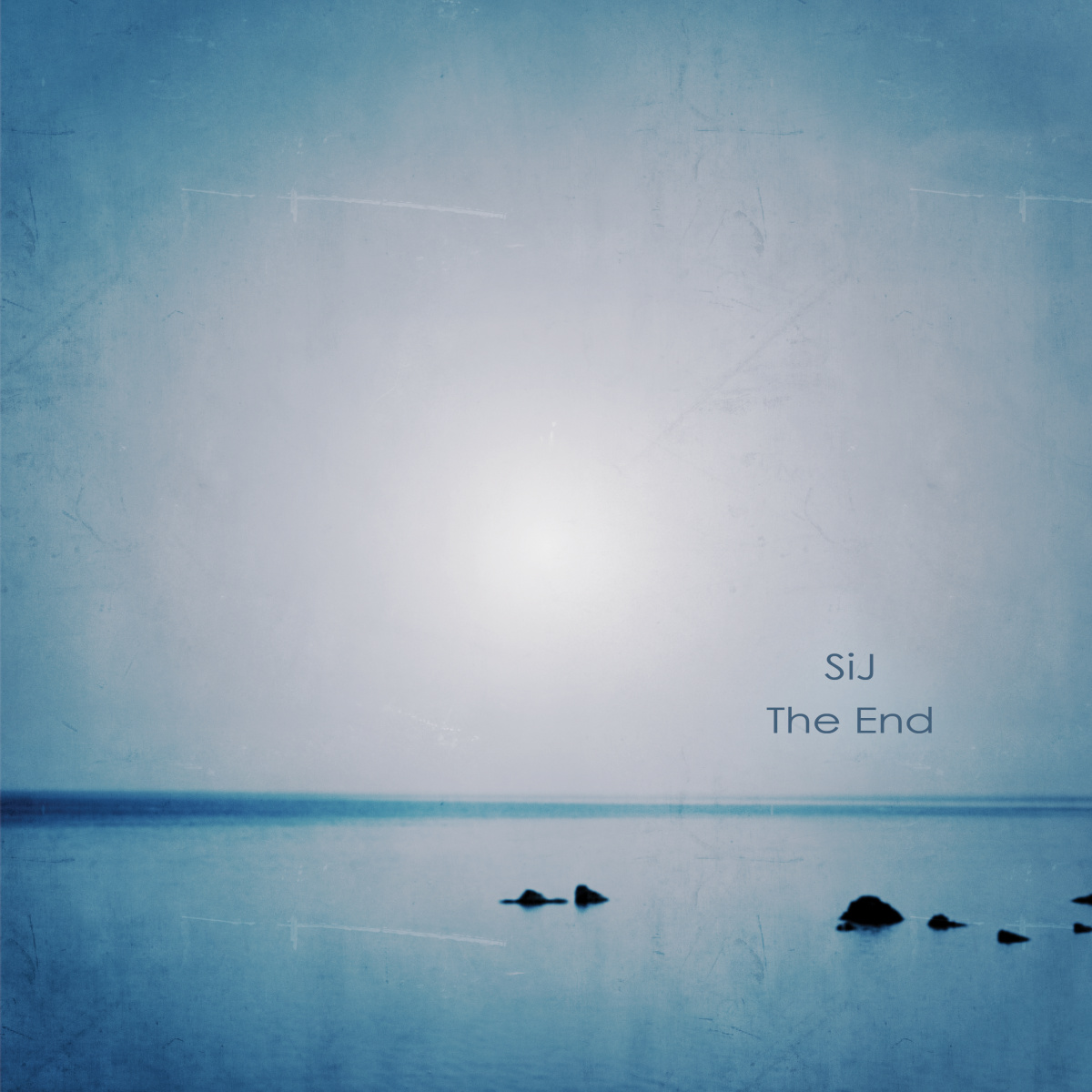 The visually understated, lower case designation "x.y.r." would not, perhaps, lead audiences to expect anything loud or imposing. Sure enough, it refers to a quiet side-project of Vladimir Karpov, who's better known within the beautiful 2muchachos collective from Cherepovets, more than two hundred miles north of Moscow. The music of 2muchachos often becomes a wordless, lo-fi evocation of Russia's leafy forests: field recordings interweave with unhurried celebrations of squirrels, barn owls, fir cones, and other representatives of rural calm.
The visually understated, lower case designation "x.y.r." would not, perhaps, lead audiences to expect anything loud or imposing. Sure enough, it refers to a quiet side-project of Vladimir Karpov, who's better known within the beautiful 2muchachos collective from Cherepovets, more than two hundred miles north of Moscow. The music of 2muchachos often becomes a wordless, lo-fi evocation of Russia's leafy forests: field recordings interweave with unhurried celebrations of squirrels, barn owls, fir cones, and other representatives of rural calm.
The fundamental difference, perhaps, between 2muchachos and x.y.r. lies in their core narratives. The former project is very much inspired by local life, by the peaceful greenery that can be reached by bicycle. The instrumentals of x.y.r., however, have recently called upon Daniel Defoe's 1719 story, "Robinson Crusoe." Fantasy leads us much further from home. And now we have a new mini-album from x.y.r., entitled "Arktika." Both thematically and graphically, it employs the romance of seafaring explorers, brave enough to venture beyond Russia's freezing periphery.
The visually understated, lower case designation "x.y.r." would not, perhaps, lead audiences to expect anything loud or imposing. Sure enough, it refers to a quiet side-project of Vladimir Karpov, who's better known within the beautiful 2muchachos collective from Cherepovets, more than two hundred miles north of Moscow. The music of 2muchachos often becomes a wordless, lo-fi evocation of Russia's leafy forests: field recordings interweave with unhurried celebrations of squirrels, barn owls, fir cones, and other representatives of rural calm.
The fundamental difference, perhaps, between 2muchachos and x.y.r. lies in their core narratives. The former project is very much inspired by local life, by the peaceful greenery that can be reached by bicycle. The instrumentals of x.y.r., however, have recently called upon Daniel Defoe's 1719 story, "Robinson Crusoe." Fantasy leads us much further from home. And now we have a new mini-album from x.y.r., entitled "Arktika." Both thematically and graphically, it employs the romance of seafaring explorers, brave enough to venture beyond Russia's freezing periphery.
A related sense of welcome retreat colors the newest recordings from Gleb Martinovich in Omsk, who is best known to us as Clonki. The last Clonki compositions, collectively entitled "Midnight Junket," used some antique US erotica as their artwork. Lust, love, and happy life were all positioned a long way from the present day. Clonki then quoted a couple of lines in English to drive the point home:
"It's a beautiful day; well, it seems as such./ Beautiful thoughts mean I dream too much." Those words were - and remain - attributable to Massive Attack. Bristolian trip-hop would, it seems, be a suitably grim soundtrack for modern Siberia. Fantasy works very hard to imagine somewhere else.
Ironically tagged as "sexysound," the newest Clonki tracks are gathered under the simple title of "Sax." They include the same bittersweet considerations of possible travel that we find in a recent interview. Martinovich joked that time spent "breathing the frozen Siberian air has meant my only 'tours' [in the near future] will be to a local solarium." Sunny beaches remain a dream - as do some key social connections; isolation is a longstanding theme. One of the new Clonki compositions this week includes a lengthy, unknown quotation in English. It comes from a middle-aged American man who has trouble expressing paternal love for his daughter. Silence proves stronger than overt sentiment - and two family members therefore remain apart.
"...It was around the time of the birth of my daughter, who is now three years old. It's a song about how hard those three words - 'I Love You' - are to get in a sentence sometimes. A father speaking to his sleeping daughter, perhaps, is the example. This is called 'Your Daddy Loves You.'"
If we combine these various absences, they eventually start to dovetail within the overarching melancholy of SiJ (aka Vladislav Sikach from Sevastopol, Ukraine). Tags such as dark ambient, industrial, and drone are liberally applied. Sikach meets the generic expectations of those dour styles with field recordings taken from "mundane city streets and abandoned military or industrial facilities."
Again, in the context of such authorial reticence, Slavic reviewers, bloggers, and admirers provide most of the background to SiJ. On many occasions, these online authors imagine the locations that are evoked by Sikach's ambient instrumentals. They're always places of private, natural detachment. For example, we read about "the echo of semi-submerged caves that were formed by the delicate interaction of water, stone, and air. That same echo travels multiple paths before it becomes audible. Is it striving for a specific goal or simply dispersing, like the very first sound-wave?"
These abstractions grow in significance, given the faith in music to construct soundscapes that might counter ugly landscapes. Sound builds an alternative, gentler realm. "When we create music, it creates us. In the same way, we inhale in order to live - and exhale so that life might continue. The instrumentals from SiJ breathe in and out on a grand scale..." The closer one grows to noiselessness - and the further from raucous technogenic society - the better.
With a new SiJ album - entitled "The End" - comes a new interview. Throughout that conversation, readers discover Sikach's lasting connections to melancholy. SiJ, put differently, engineers the sound of a stubborn lack or absence. "I tend to view my music as the soundtrack to a given place or event; it's often something expressed in the name of an instrumental - or an entire album. It's a [thematic] approach adopted after my 'Deep In Space' recordings [of 2011]. Before that everything tended to lack a concept and was done for the sake of sound alone. There's a fundamental sadness running through my music, but there are some compositions you could call 'sunny' or 'good natured.'" He pauses: "Yet even they have a lot of sad elements in them..."
Sikach admits that many of his works are inspired by literary or cinematic narratives. The conclusive lines of those story arcs, however, are rarely found in real life. Actuality's story-lines often remain unfinished or dissatisfying. "In essence, the main idea of my tracks will appear after I've read a book or watched a movie. Things could even start after I've experienced some event or other. Put more simply, once I have the idea to create something, that becomes my goal." A frustrating gap, however, remains between any such goals and their possible realization.
A similar depiction or discussion of elusive aims is evident in the songs of More Oblakov from Saint Petersburg (Andrei Martynov and Tosilya Chaikina). The band's name translates as "Sea of Clouds." That ethereal state is, apparently, something we all reach quickly. More Oblakov have almost nothing to say for themselves, at least in terms of PR. The one Russian phrase crowning their account on Vkontakte reads, in translation, as: "We've only just been born - but already we're in a sea of clouds."
Martynov and Chaikina have at least been willing to admit that their moniker is a direct lunar reference, in which case we're dealing with the Mare Nubium on that planet's near side. "We wanted to choose something 'cosmic'... A combination of air and water. Something about the future." Suddenly these avoidances of concrete addresses, nations, faces, and places take on a grander importance. They become a metaphorical statement of how young musicians view their future, no matter where or when they're born.
The passage of time makes life less clear.
A new More Oblakov mini-album has now appeared through Afisha: "V Moei Kvartire" (In My Room). It comes with a commentary from both performers. In one instance, they speak directly of escapism. "So many people of our generation try and escape from reality. And it's easy to lose yourself in the data flows of modern technology. Some people completely vanish; they disappear from whatever's happening around them. And, whenever that does occur, it's probably not a very happy experience. Personally I think this [tendency to run from the material world] expresses a basic spirit of our age."
Reality fails to satisfy, yet escapism is supposedly no better. Ideals remain illusory, be they material or located in some distant, half-imagined realm. One major cause of this limbo is said to be the city of Saint Petersburg itself, famously perched on the edge of terra firma and endlessly swathed in fog, rain, or snow. More Oblakov declare: "How could the streets of Saint Petersburg not be important for people like us, who were born and raised here? We were all raised in the city's artistic or creative families. We've been surrounded by art, culture, and everything that makes Saint Petersburg so famous. Of course, that was all a big influence on us... even the darker, gloomier sides of the city."
Tosilya calls those sadder facets of local reality "wonderful." Endless yearning, it seems, is preferable to sad realization or acquiescence. Andrei adds: "I live on the street where Dostoevsky wrote 'Crime and Punishment.' The city's general atmosphere might be unfriendly and somewhat mystical, but I still love it. Whenever I'm out of town, I find myself wanting to come back here..." To the streets of occasionally desperate hope, one might say. After all, Dostoevsky's novel begins amid the "fearful, despairing cries that rise shrilly from the street," yet it ends on a note of hard-won hope.
Put differently, the novel concludes with the "beginning of a new story [of redemption] – the story of the gradual renewal of a man, the story of his gradual regeneration, of his passing from one world into another, of his initiation into a new unknown life." Somehow, aspirations manage to stay just ahead of actuality. Especially in Saint Petersburg.
Ссылка на оригинал
Distant or Elusive Aspirations: Clonki, x.y.r., SiJ, and More Oblakov
-
Другие рецензии
-
Слушать





